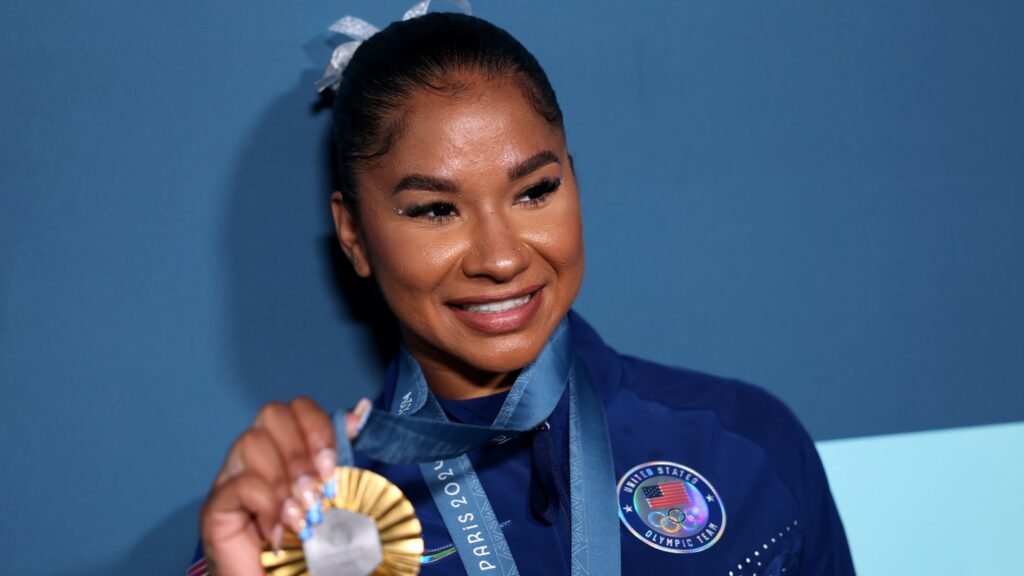PARIS — The Court of Arbitration for Sport (CAS) has upheld its initial decision asking gymnast Jordan Chiles to return her bronze medal from the floor exercise final, despite USA Gymnastics presenting new video evidence.
The CAS informed USA Gymnastics (USAG) that their rules do not permit reconsideration of final decisions, even with “conclusive new evidence.” USA Gymnastics expressed disappointment and vowed to pursue further appeals, including to the Swiss Federal Tribunal, to secure just scoring and placement for Chiles.
The notification followed a CAS ruling that vacated a last-minute inquiry by Chiles’ coaches. Initially, the inquiry increased Chiles’ score by 0.1, moving her from fifth to third place. However, the arbitrators ruled the inquiry was filed too late. Consequently, the International Gymnastics Federation adjusted the results, and the International Olympic Committee (IOC) announced it would “reallocate” the bronze medal to Romania’s Ana Barbosu, who had finished fourth.
USA Gymnastics submitted video evidence proving coach Cecile Landi filed the inquiry within the required one-minute timeframe. According to their statement, Landi made the inquiry 47 seconds after the score was posted, followed by a second statement at 55 seconds.
Chiles’ score initially appeared as 13.666, with Barbosu scoring 13.700 and briefly celebrating her assumed bronze medal win. However, after Landi’s inquiry argued for correct difficulty valuation, Chiles’ score was adjusted to 13.766, surpassing both Barbosu and another Romanian gymnast, Sabrina Maneca-Voinea.
Romanian officials protested the timing of the inquiry, leading to Saturday’s CAS decision, which officially revised Chiles’ score back to 13.666. The International Gymnastics Federation then updated the final rankings, placing Chiles fifth and Barbosu third.
The international governing body for gymnastics announced plans to revise the final rankings for the event, moving Chiles to fifth place and Barbosu to third.
Chiles’ final slot performance and subsequent score inquiry has drawn significant attention. The bronze medal reallocation was the final step in these proceedings, highlighting the IOC’s authority over medal awards.
The floor exercise medal ceremony became a notable moment of the summer Olympics, with all three medalists being Black gymnasts. Chiles and her U.S. teammate Simone Biles, who won silver, bowed to gold medal winner Rebeca Andrade of Brazil, creating a viral moment of sportsmanship.
Criticism of gymnastics officials has emerged following the event. The original incorrect difficulty score and controversial inquiry timing have sparked debates. Additionally, viewers pointed out another possible error regarding Maneca-Voinea’s routine, where a video replay suggested she stayed in bounds despite a 0.1 penalty deduction. Correcting this would have given her a 13.800 score, placing her ahead of both Chiles and Barbosu.
Romanian officials also requested a rescore for Maneca-Voinea and proposed all three gymnasts share the bronze medal. The court declined both requests.
“All this talk about the athlete, what about the judges?? Completely unacceptable,” U.S. gymnast Suni Lee shared on Instagram, expressing support for Chiles.
Historical precedents show that the Olympics occasionally return medals, but this usually involves doping or eligibility violations. Rarely, disputes about scores have led to shared medals, as seen in the 2002 pairs’ figure skating and the 2022 women’s ski cross finals.
In both cases, the IOC allowed the athletes to share the disputed medals after legal reviews. The current controversy surrounding Chiles and the reallocation to Barbosu continues to highlight the complexities in gymnastics scoring and arbitration.





